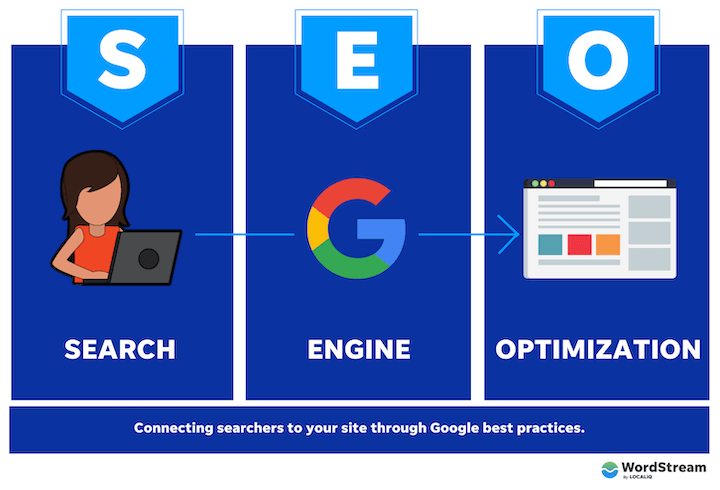Cons of WordPress: What You Need to Consider Before Committing?
Cons of WordPress: While WordPress is undeniably a robust and widely-used platform for website development, it’s crucial to be cognizant of its limitations and potential drawbacks. Before making a commitment to WordPress, it’s imperative to contemplate the cons and challenges that may arise during your website-building journey. In this article, we will explore some of the cons of WordPress to enable you to make an informed decision.
Navigating the Downsides: A Closer Look at the Cons of WordPress:
Learning Curve:
Cons: WordPress’s user-friendly interface is undoubtedly an asset, but grasping its more advanced features and customizations can pose a challenge, particularly for novices. Achieving mastery in harnessing the full potential of WordPress may demand a significant investment of time and effort.
Security Concerns:
Cons: Owing to WordPress’s immense popularity, it garners the attention of hackers and malicious entities. While regular updates and security plugins can help mitigate risks, maintaining the security of your WordPress website necessitates a continual vigilance.
Maintenance Obligations:
Cons: WordPress websites demand periodic maintenance. This encompasses updating the core software, themes, and plugins to ensure compatibility and fortify security. Neglecting these updates can leave your site vulnerable to threats.
Plugin Dependency:
Cons: Although plugins enhance WordPress’s functionality, excessive reliance on them can result in website slowdowns and compatibility issues. It is imperative to select reputable plugins judiciously and minimize their usage.
Customization Complexity:
Cons: While WordPress extends customization capabilities, achieving intricate design alterations may entail proficiency in coding or necessitate the engagement of a developer. Attaining a highly personalized appearance can be challenging for individuals lacking technical expertise.
Performance Optimization:
Cons: WordPress websites are susceptible to performance issues if not optimized adequately. You may need to invest time in optimizing images, implementing caching mechanisms, and managing resource-intensive plugins to maintain optimal performance.
Scalability Hurdles:
Cons of WordPress: While WordPress can be scaled to a certain extent, exceptionally large or intricate websites may grapple with scalability challenges. Extensive customization and resource demands can impede overall performance.
Cost of Premium Features:
Cons: Although WordPress itself is open-source and free, the adoption of premium themes, plugins, and third-party services can accumulate substantial costs. A well-thought-out budget is imperative for maintaining a fully functional website.
SEO Competitiveness:
Cons: WordPress is inherently SEO-friendly; however, it does not guarantee high search engine rankings on its own. Achieving favorable SEO outcomes necessitates a robust content strategy, meticulous keyword research, and concerted efforts in off-page optimization.
Multilingual Complexities:
Cons: While WordPress offers support for multilingual websites, managing such a site can be intricate and may necessitate the integration of additional plugins or themes to ensure a seamless user experience.
Content Management for Large Sites:
Cons: While WordPress is suitable for many websites, managing large and complex sites with extensive content can be challenging. It may require significant effort to maintain organization and performance.
Limited Control Over Updates:
Cons: While regular updates are essential for security, they can sometimes cause compatibility issues with themes and plugins. WordPress does not offer granular control over updates, which can be frustrating for some users.
Licensing and Copyright Issues:
Cons: Some themes and plugins in the WordPress ecosystem may come with licensing restrictions or copyright issues. Careful consideration is necessary when choosing third-party assets.
Limited Built-in E-commerce Features:
Cons of WordPress: While WordPress can support e-commerce websites, its built-in e-commerce features are limited compared to dedicated e-commerce platforms like Shopify or WooCommerce. For extensive online stores, you may need additional plugins and customization.
Dependency on Hosting Providers:
Cons: Your website’s performance and security are heavily reliant on your chosen hosting provider. A subpar hosting service can lead to slow load times and security vulnerabilities.
Maintenance Overhead:
Cons of wordPress: While WordPress provides flexibility, this comes with the overhead of regular maintenance, including backups, security checks, and software updates. Neglecting maintenance can lead to issues.
Backup and Recovery Complexity:
Cons: Although backups are essential, restoring a WordPress site from backup can be complex. It’s crucial to have a backup and recovery plan in place to address unexpected issues.
Conclusion: About Cons of WordPress:
Cons of WordPress stands as a versatile and potent platform, but it is not without its challenges and drawbacks. As you contemplate the adoption of WordPress for your website, it is paramount to meticulously assess its pros and cons. A comprehensive understanding of the potential drawbacks and a well-considered plan for addressing them can empower you to leverage WordPress’s capabilities while mitigating its limitations. Ultimately, WordPress can be an exceptional choice for a diverse range of website owners, provided you approach it with awareness and preparedness to address these cons effectively.

My name is sonu singh. I have experience in WordPress, SEO and digital marketing I worked for many companies according to my working way from which company growth boost like a rocket. here I am sharing my work experience comes from knowledge
Related Posts
- Discover the Best: Top 5 Must-See Smartphones of 2023.
In the ever-evolving world of technology, staying up-to-date with the latest innovations is paramount. If…
-
WordPress vs. CMS Platforms: Which One Is Right for You?
/*! elementor - v3.16.0 - 14-09-2023 */ .elementor-heading-title{padding:0;margin:0;line-height:1}.elementor-widget-heading .elementor-heading-title[class*=elementor-size-]>a{color:inherit;font-size:inherit;line-height:inherit}.elementor-widget-heading .elementor-heading-title.elementor-size-small{font-size:15px}.elementor-widget-heading .elementor-heading-title.elementor-size-medium{font-size:19px}.elementor-widget-heading .elementor-heading-title.elementor-size-large{font-size:29px}.elementor-widget-heading .elementor-heading-title.elementor-size-xl{font-size:39px}.elementor-widget-heading .elementor-heading-title.elementor-size-xxl{font-size:59px}WordPress vs.…
- How Hostinger Features Elevate Your Website?
In the fiercely competitive realm of web hosting, Hostinger emerges as a standout provider, offering…








